Find photos, videos, and more from the 2024 Beyond the Bars Conference: Justice Beyond Punishment
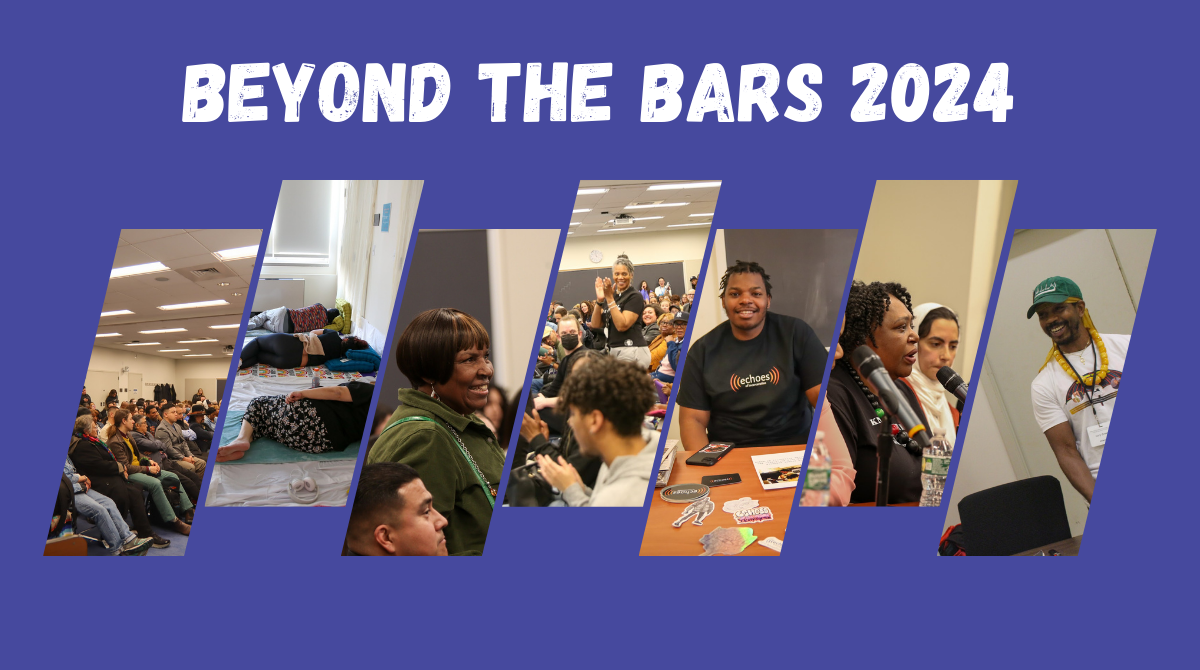
The 2024 Beyond the Bars Conference: Justice Beyond Punishment brought together people, organizations, and movements from around the world to explore the struggles of challenging carceral punishment while highlighting and advancing non-punitive approaches to interpersonal and community violence that offer us ways out of the punishment paradigm.
Thursday Night
We kicked off the weekend at the Schomburg Center for Research in Black Culture with a celebration of our Women Transcending Collective Leadership Institute (WTCLI). WTCLI offers leadership development for women impacted by the justice system that includes: capacity building, legislative and advocacy tools, community organizing, and communication skills. The celebration included the graduating fifth cohort and welcomed in the new incoming sixth cohort. Alum from previous cohorts filled the room. There were performances by Batalá New York, Right/Write to Heal, and Kierah “Kiki” King. Calls to action included joining the National Council for Incarcerated and Formerly Incarcerated Women in Washington DC on April 24 for a march to call for clemency for women.
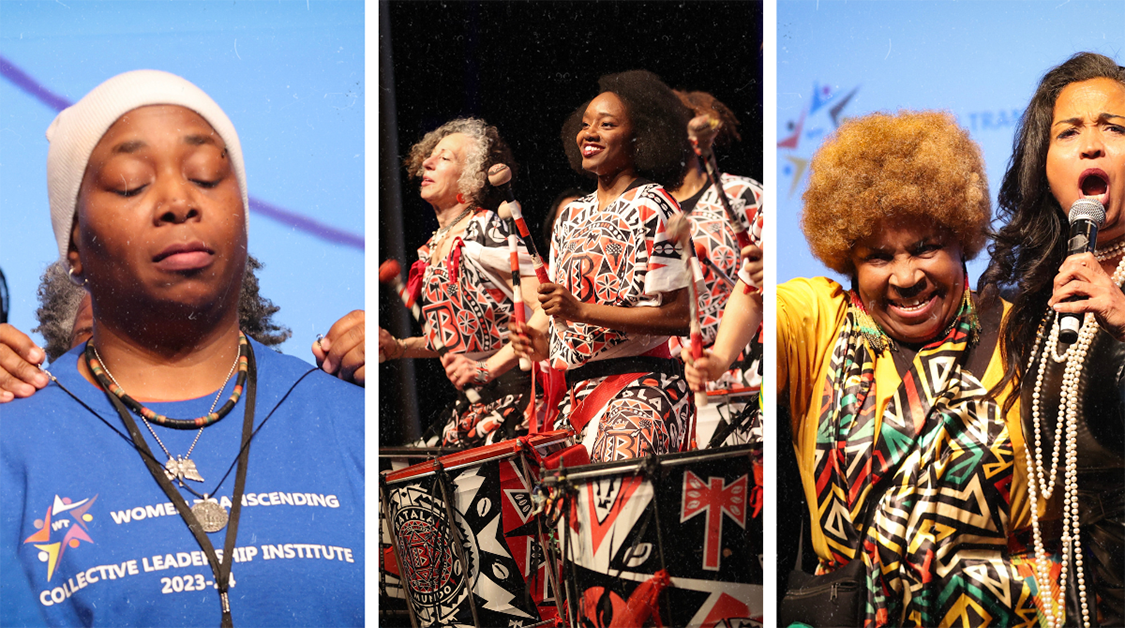
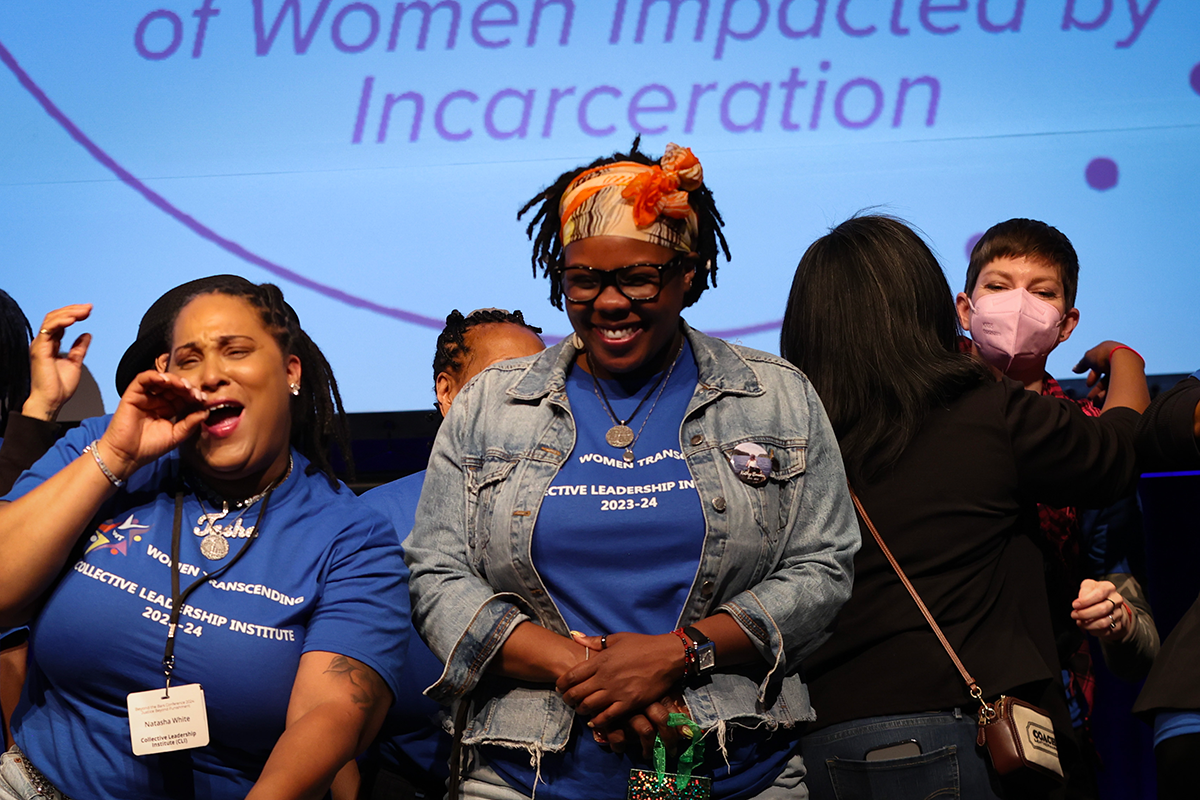
Friday Night: Solidarity Through Struggle: Global Conversations
Friday was also held at the Schomburg Center for Research in Black Culture. Plenaries focused on the global struggle of incarcerated and formerly incarcerated women and the worldwide resistance against colonialism currently and historically.
Plenary #1: Solidarity Through Struggle: A Global Conversation with Formerly Incarcerated and Directly Impacted Women
Panelists: Kenya Cuevas representing Mexico, Debbie Kilroy representing Australia, Cátia Kim representing Brazil, Teresa Njoroge representing Kenya, and Dawn Harrington representing the US.
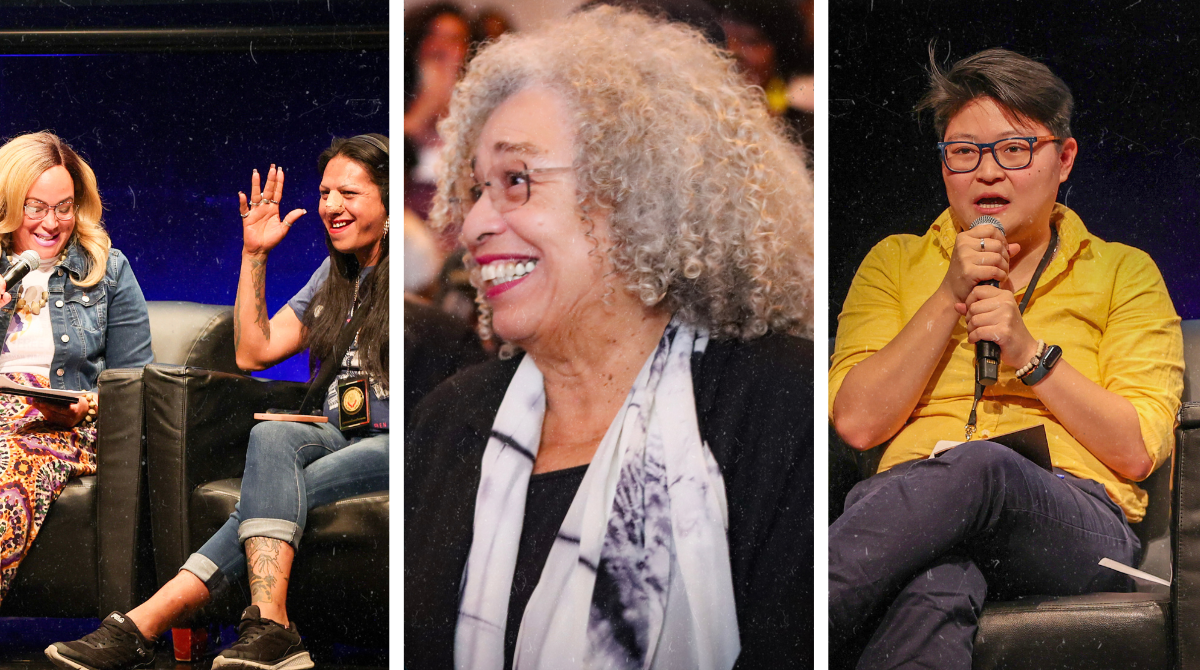
In 1859 when the Brits arrived in Kenya, they brought with them the very foreign concept of prison. Within their time in Kenya they had already built 30 prisons. Prisons didn't exist in Kenya before their coming. We had our own traditional ways of addressing issues. Prisons are very anti-ubuntu. When they separate women from their children to serve their sentences in prison, it reminds me of our ancestors when they were separated from their children into ships to go into slavery in America. It's the same script, different cast.
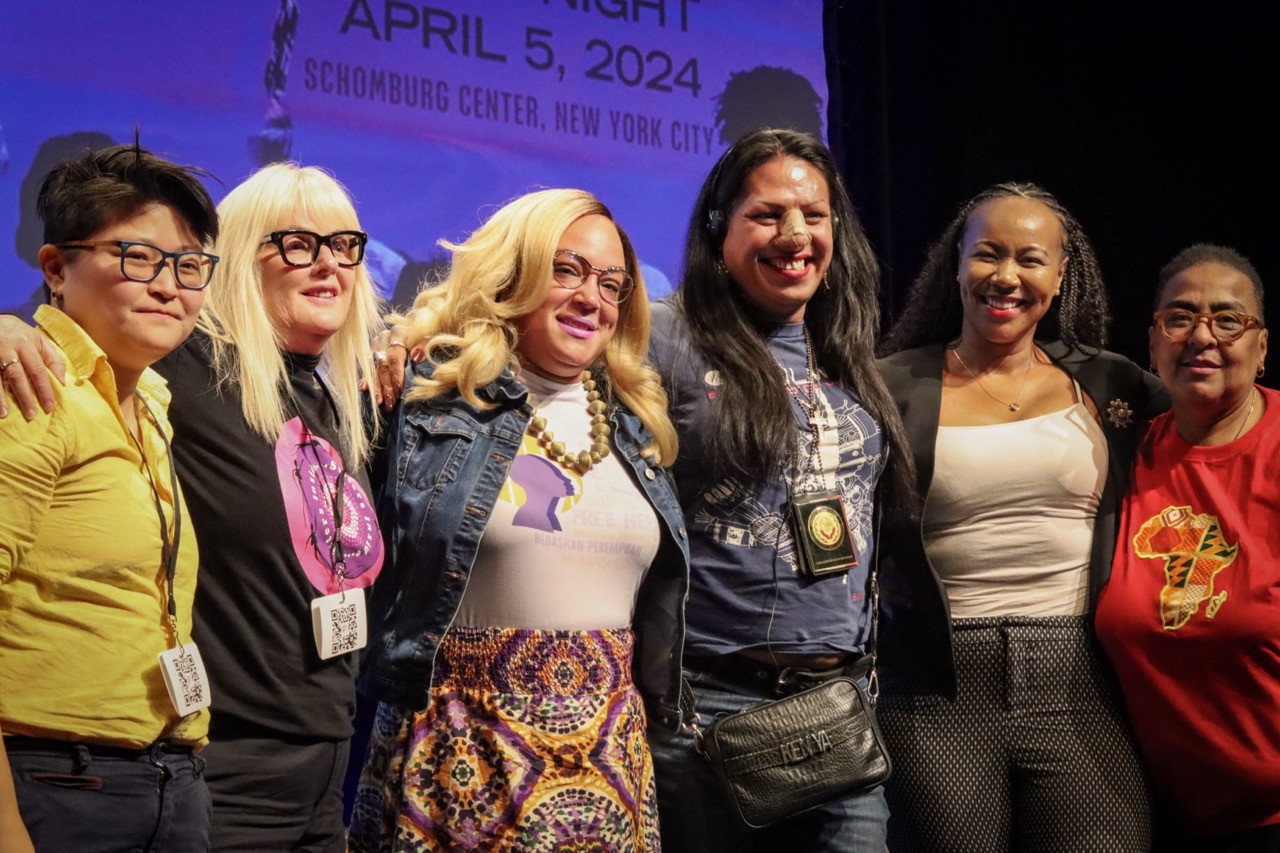
Plenary #2: In Pursuit of Freedom: Solidarity Beyond Borders
Panelists: Amany Khalifa, Pascale Solages, Nadia Ben-Youssef
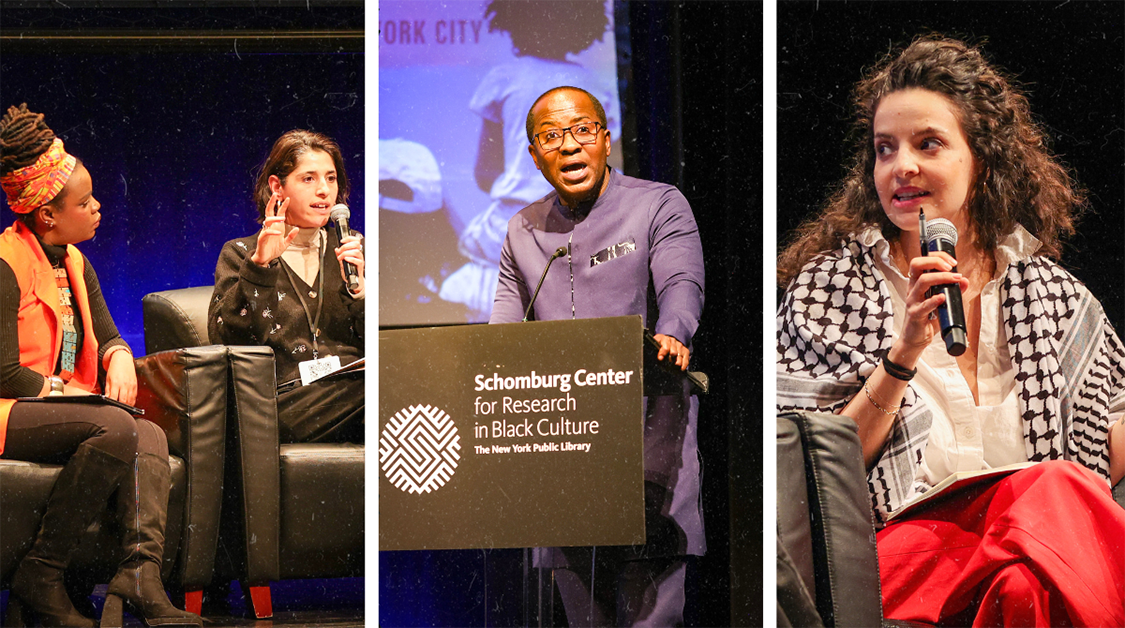
They don't want us to be independent. They don't want us to be liberated from their funding. Funding is a colonial strategy.
See more photos from Thursday and Friday here. Photo credit: www.day1pictures.com
Saturday
On Saturday, we gathered for three plenaries full of incredible panelists who shared about the indigenous roots of justice beyond punishment, emerging responses to interpersonal violence, and resistance against state violence. The day ended with a group of breakout sessions.
Morning Plenary #1: Indigenous Worldviews on Justice Beyond Punishment
Panelists: Erik Bringswhite, I. Am. Legacy.; Albino Garcia, La Plazita Institute; Fania Davis, Restorative Justice for Oakland Youth; Cheryl Fairbanks, Sovereignty 360/Life Comes From It
Moderator: Ariel Clark
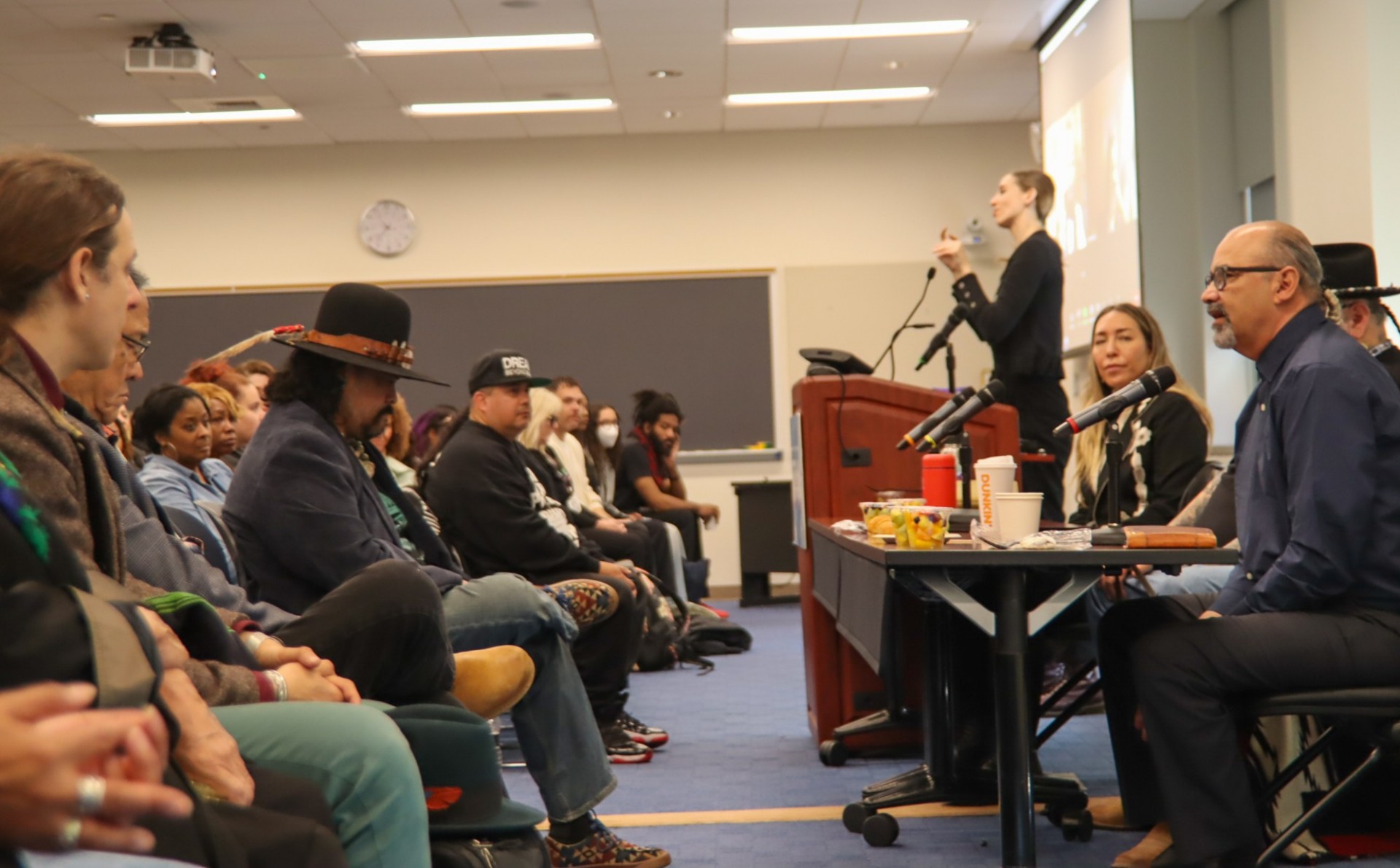
Morning Plenary #2: Justice Beyond Punishment: Growing Responses to Interpersonal Violence
Panelists: Sonya Shah, The Ahimsa Collective; Juan Gomez, MILPA; K Bain, Community Capacity Development; Nikki Brown, Spirit House
Moderator: Charlene Allen, Justice Beyond Punishment Collaborative
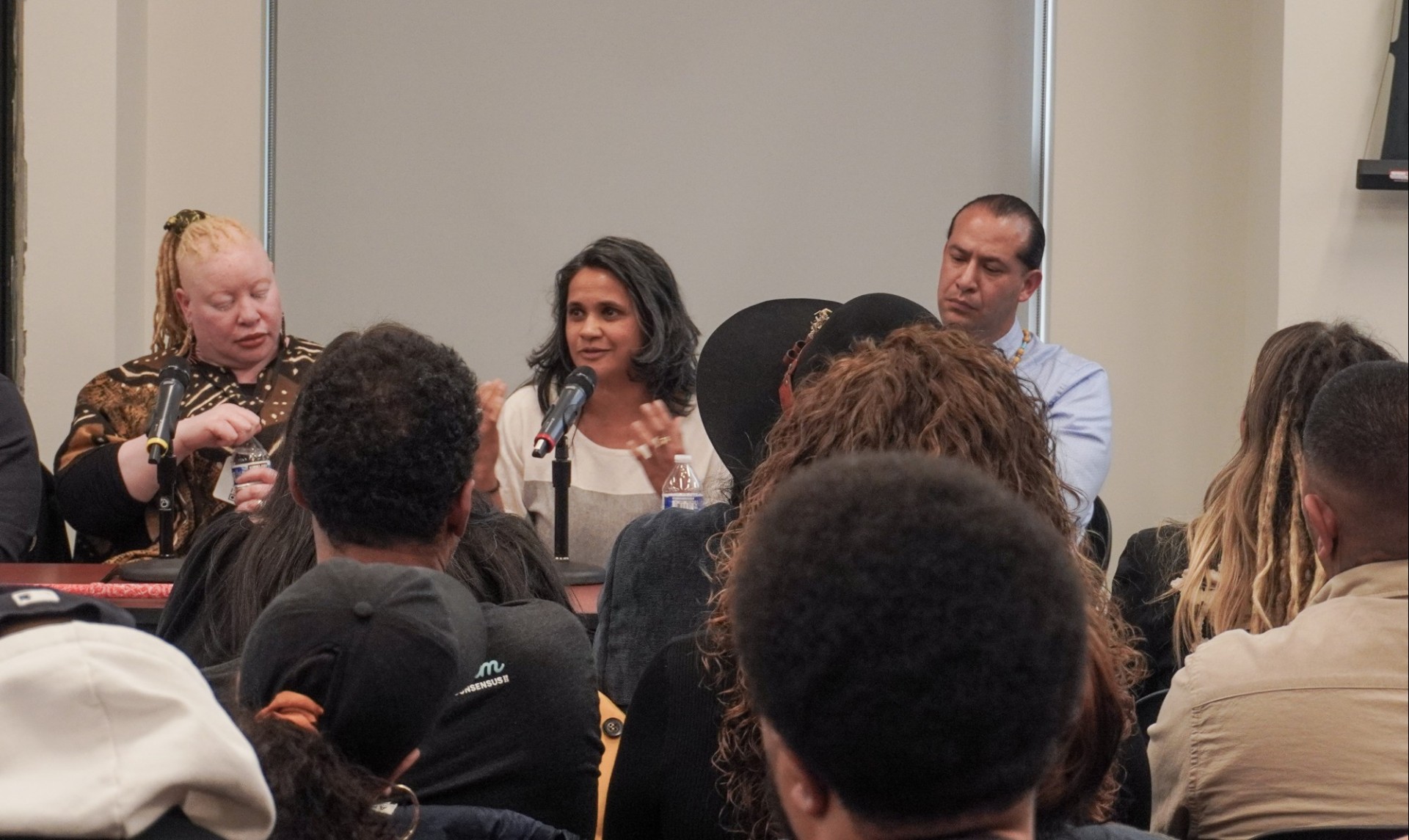
Afternoon Plenary: Justice Beyond Punishment: Uprooting State Violence
Panelists: Andrea James, The National Council for Incarcerated and Formerly Incarcerated Women and Girls; Sumaya Awad, Adalah Justice Project; Joyce McMillan, JMac for Families; Tammara McCoy, Survivors Justice Project; Krystal Twobulls, Honor the Earth
Moderator: Alice Kim, Beyond Prisons at the Center for the Study of Race, Politics & Culture
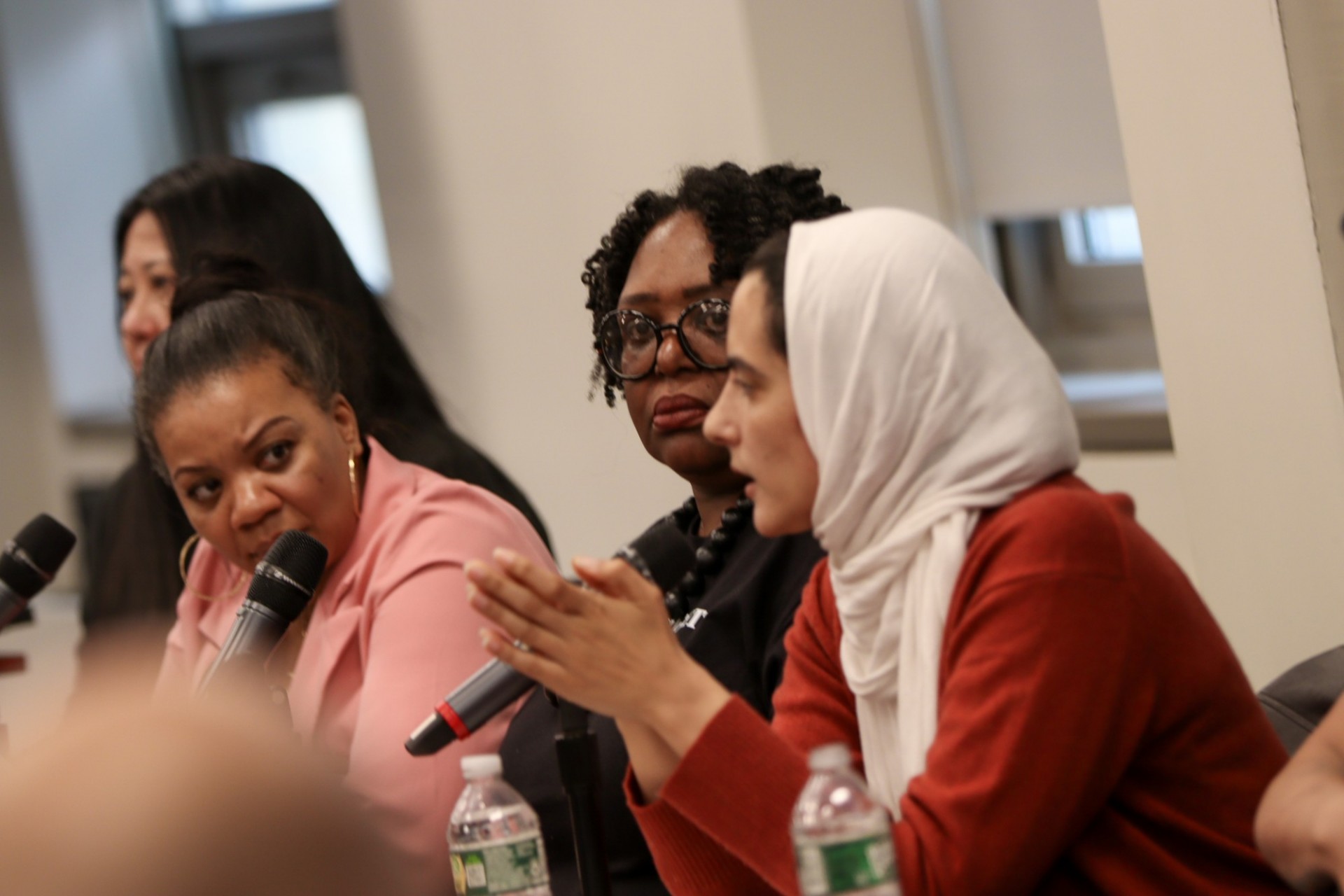
Saturday and Sunday Workshops
On Saturday afternoon and all day Sunday we held more than 40 workshops from activists, organizers, healers, practitioners and more, from all across the US and around the globe. Workshops covered a wide range of topics from indigenous peacemaking, restorative, transformative and healing justice, conflict resolution, organizing for prison closure and decarceration, gender justice, media storytelling, art making, grant writing, healing and grief processing, and much more.
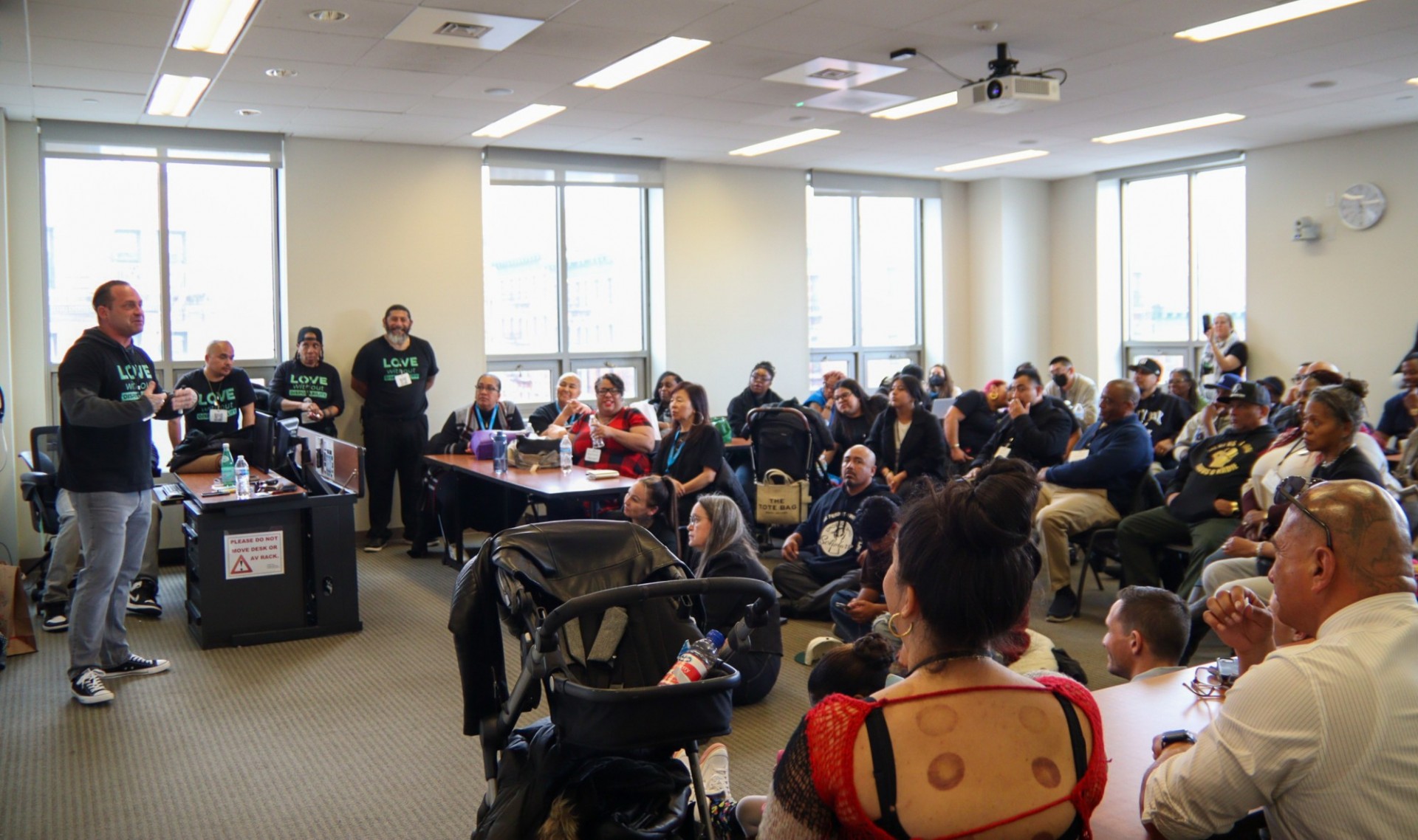
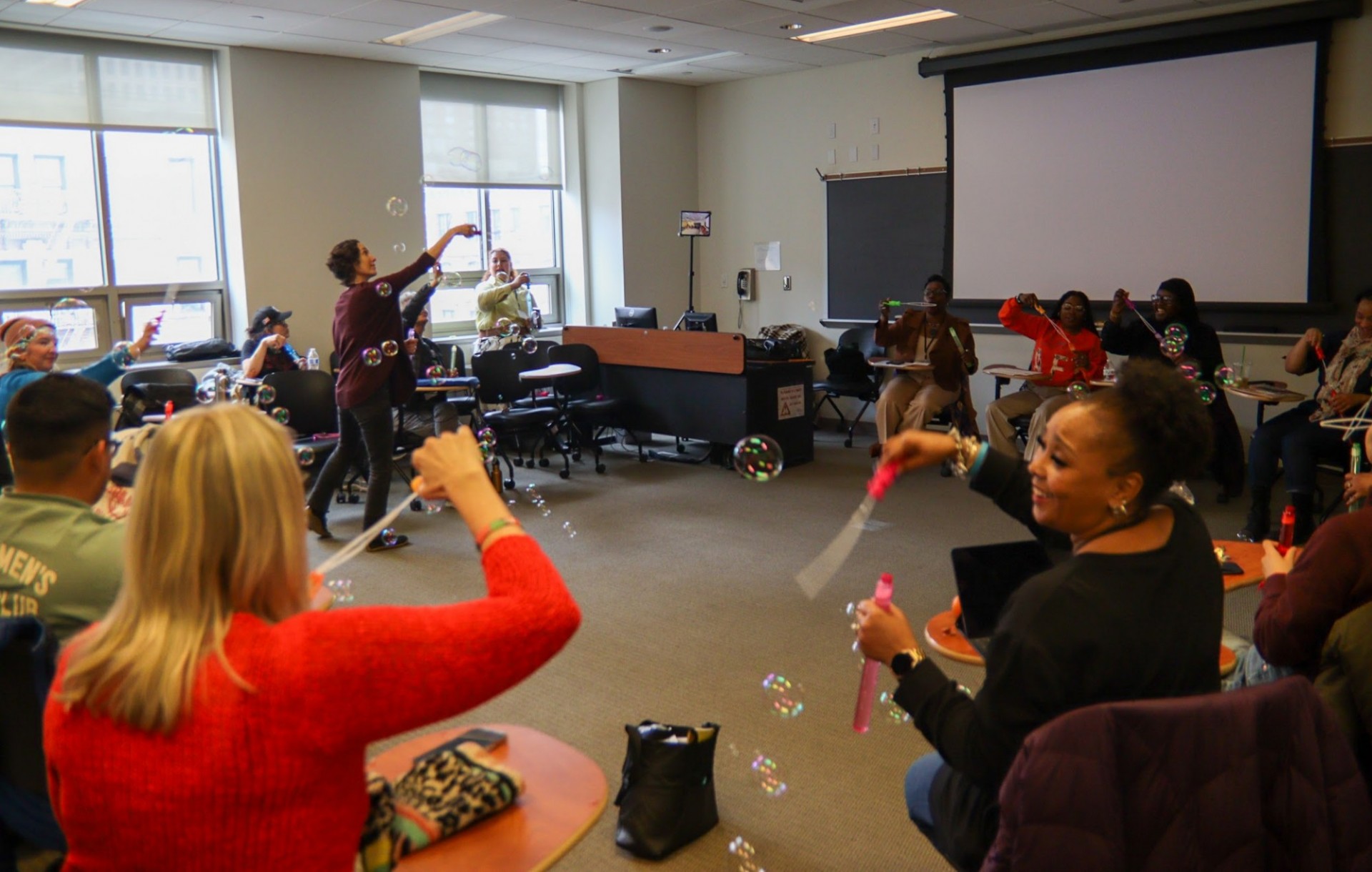
Beyond the Plenaries
Throughout the weekend, we had a healing room led by the Givers Revival offering a space for people to relax, receive massages, ancestral tarot readings, and more. We also partnered with the Right/Write to Heal group in Maine on an art exhibit featuring art from incarcerated and formerly incarcerated women. In the lower level, our partners H.O.L.L.A (How Our Lives Link Altogether) set up an interactive museum of the history of our movements. There was also opportunity for organizations to table and meet people who are interested in joining their work.
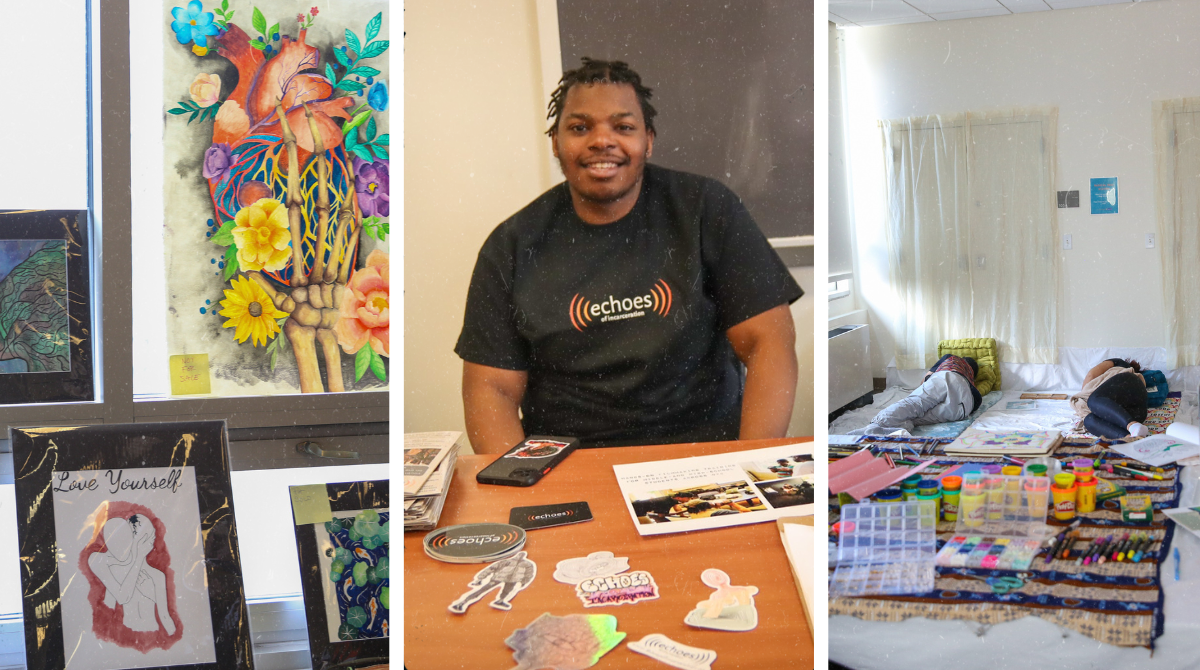
Thank you to all who joined us for an incredible weekend, and especially to all of our volunteers, Columbia staff, and partners who made this event possible! Thank you to Echoes of Incarceration for live-streaming the plenaries and for photos from Saturday and Sunday. Additional thanks to Johnny Perez at www.day1pictures.com for the photos from Thursday and Friday night. And to all of our sponsors for your support.
